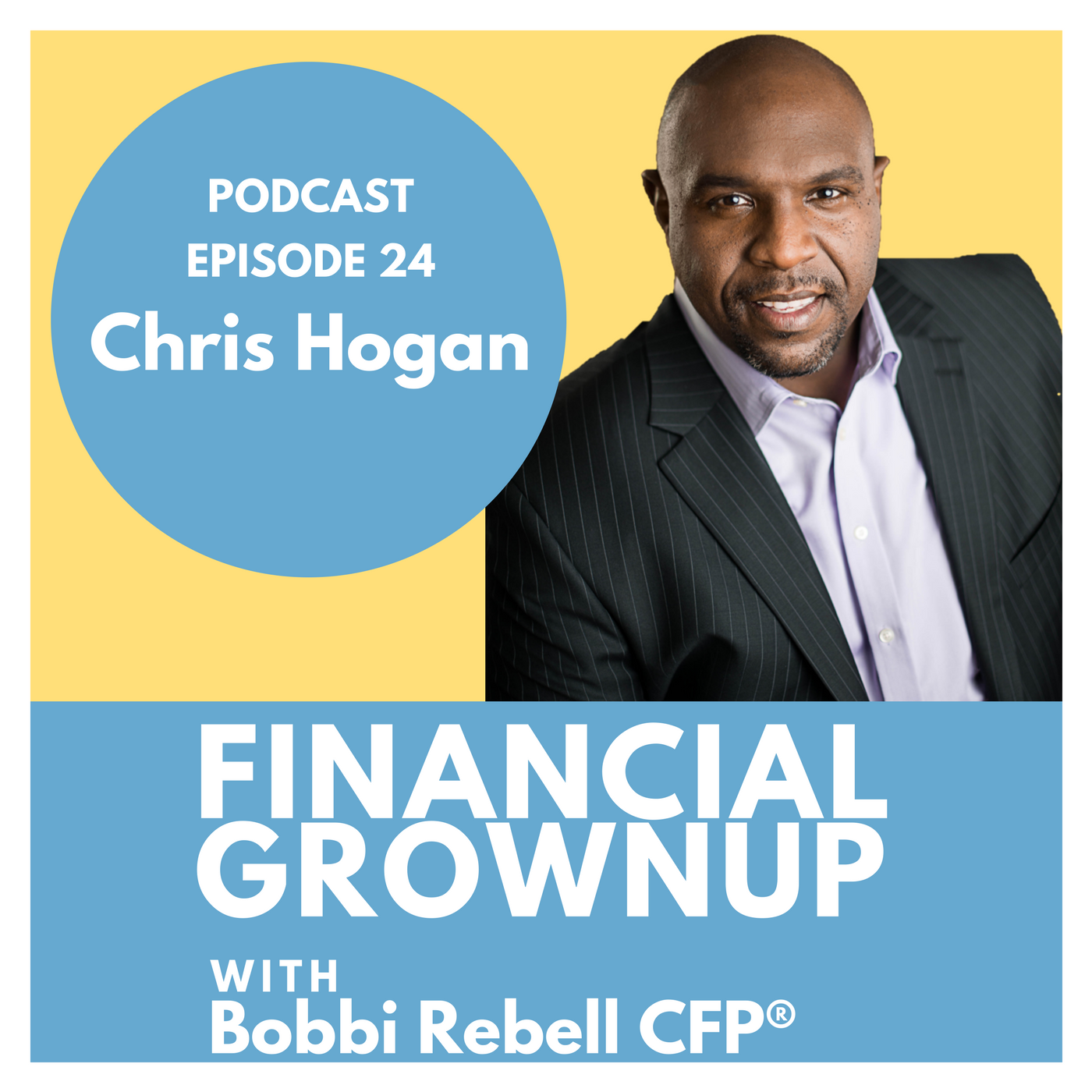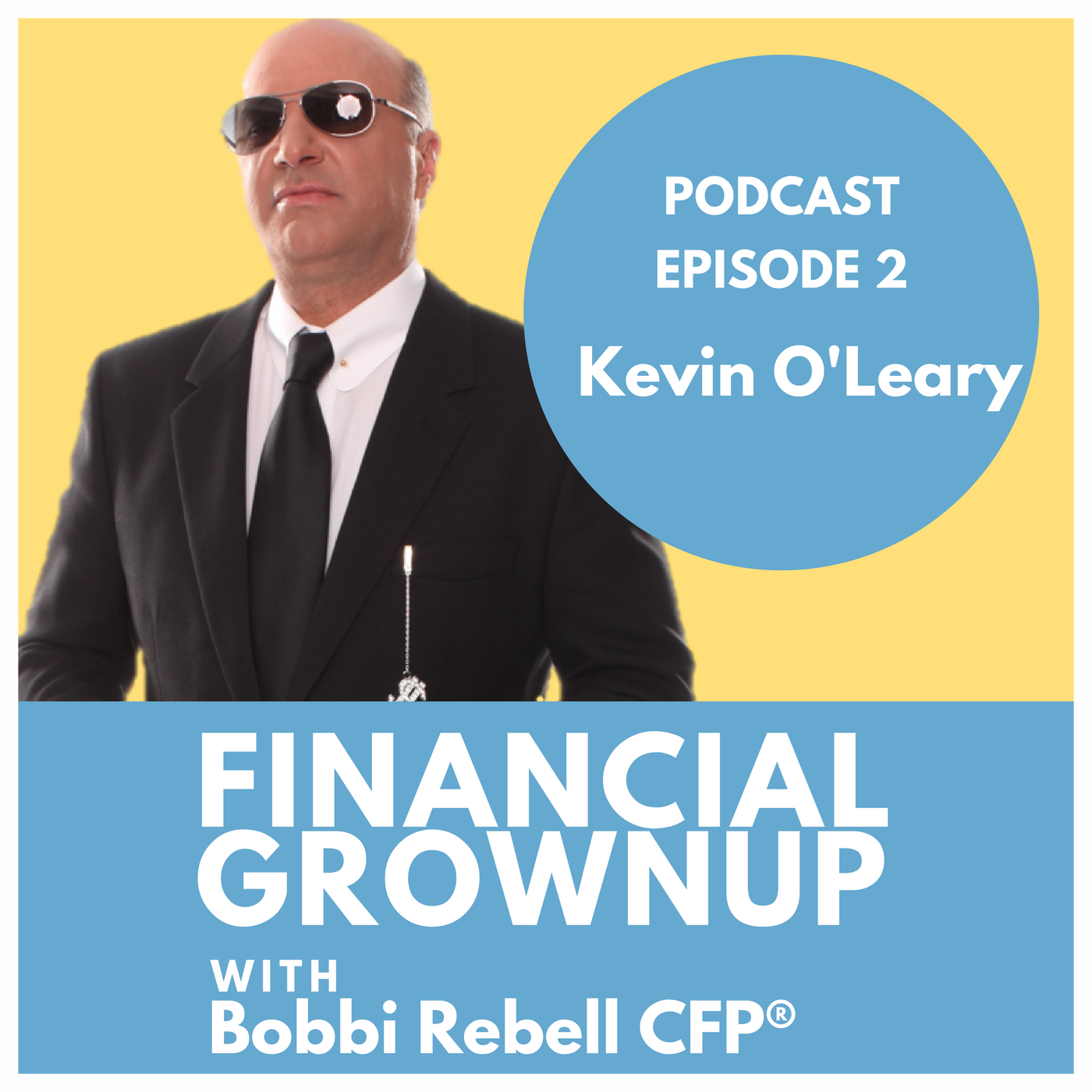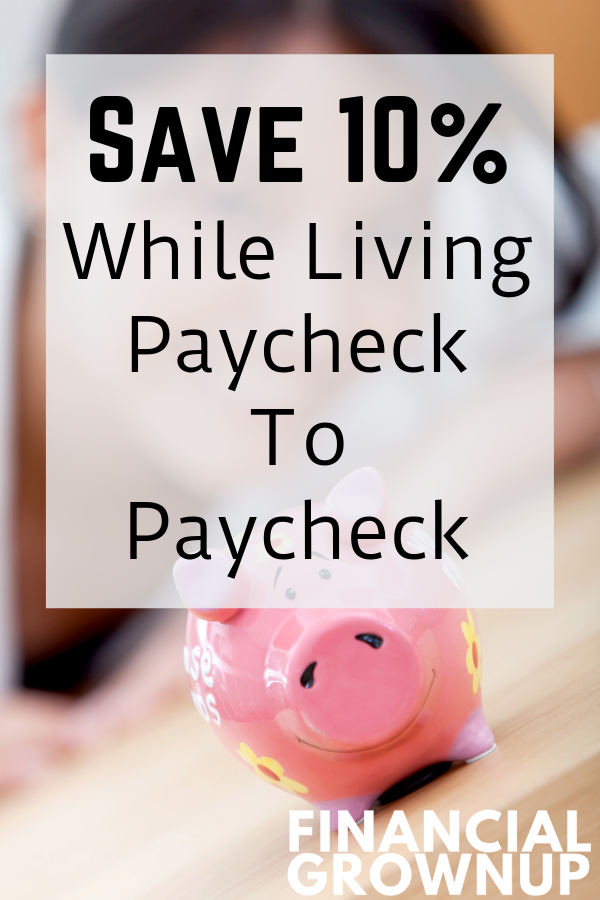YouTube superstar Sarah Wilson documented and inspired others with her journey to being debt free. But after she got to do the debt free scream with Dave Ramsey, she had a whole new set of challenges. Plus Sarah saves Bobbi from buying things she can get for free at the Fincon conference.
Sarah's money story:
sarah wilson:
five years ago I was working in a newspaper for about $26,000 a year. I had deferred my student loans from college, and there were $33,000 of them. I lost my job. Suddenly I was extremely scared and I swore to myself that whenever I got a new job, I would figure this money thing out. Because being unemployed would've been so much less stressful had I not had $33,000 worth of student debt looming.
sarah wilson:
So, I got a new job making $26,000 a year at a newspaper, in a new state, and I started budgeting. I did everything possible to lower my expenses, increase my income, side hustling. And over the next three years, I actually documented it on YouTube. Every single week, I'd go on and tell people how much debt I had left and what I was doing that week to help fix it. It took me three years and a couple of different jobs where I raised my income a little each time, but I paid off all my debt.
bobbi rebell:
We're so proud of you for that. And also, what you're leaving out with your modesty is that while you were doing this, there was something about you. You have a relatability and an it factor that you also developed a huge following of fans and supporters while doing this. How many YouTube subscribers do you have right now?
sarah wilson:
A little over 56,000.
bobbi rebell:
Wow. And you also have monetized that. So, you actually have this side business of this YouTube channel, which is really inspiring and helping so many people. Then you hit a big milestone a year ago and that changed everything. We're going to start your story, your money story that you're going to share, with a big scream.
sarah wilson:
Yeah, I actually went on the Dave Ramsey show because I was a huge fan of his and I was following his steps to get out of debt. I was able to do my debt free scream live in studio. That was just incredible. It felt like closing and opening a chapter in my life.
bobbi rebell:
It's a big milestone and it brings us to what we want to talk about, which is what happens when you reach your money goal. Because your money goal was to be debt free. That scream was so symbolic. Then what?
sarah wilson:
The first thing I decided was to save up a giant chunk of money. Once again, ala Dave Ramsey. I saved six months worth of living expenses in case I ever lost my job again. I would be okay for a while. Or if I suddenly got into a car accident, or a medical thing, it just gives so much peace to know that I have 10 grand sitting in a interest earning bank that I can use if something terrible happens.
sarah wilson:
And then I also started investing, which is super fun and kind of intimidating for someone who was never taught about money.
bobbi rebell:
How did you start investing?
sarah wilson:
I did a lot of research, and procrastinated way too long. And then I just kind of jumped in. I bought a few index funds. I did a little robo-investing. Just kind of got my feet wet and figured out what was right for me. I'm still exploring that. I'm starting to purchase, actually, some single stocks and do some more exploratory stuff.
sarah wilson:
I funded my... I did more retirement funding for her, so I opened a couple of Roth IRAs. It's a really fun time now because I'm learning about all of that, which was not within my capacity when I was getting out of debt. I couldn't think about future dreams then.
bobbi rebell:
How specifically are you learning? What are your tools and how did you set up these things? I mean, if we get really basic, did you choose a robo-advisor? Did you just walk into a branch of a brokerage firm? I mean, what specifically did you do at that point?
sarah wilson:
Well, I tried working with a planner first and then I didn't like that. They wanted 5% of whatever I invested and I was like, "You know what? No. I can figure this out. I figured out how to get out of debt. I can figure this out on my own."
sarah wilson:
So, I've read every single thing that Bigger Pockets has ever wrote. I've watched so many YouTube channels that my friends are on. As they've learned, they've shared that information as well, which is incredible. And read a couple of books. Erin's Broke Millennial's Guide To Investing, TFD, all of it.
bobbi rebell:
The Financial Diet.
sarah wilson:
Yes.
bobbi rebell:
It's The Financial Diet.
sarah wilson:
Oh, I'm sorry, the Financial Diet. And of course, How To Be a Financial Grownup by someone you might know.
bobbi rebell:
Thank you. I think education is such an important message. As you go through the different phases of being a grownup, your phase one was paying off the debt. Your phase two is educating yourself to grow your money. So, you didn't go with a financial advisor that wanted to take 5%. What did you go with? Are you with a discount brokerage. Are you with a robo-advisor? How did you come to those decisions?
sarah wilson:
Right. I don't advise people who watch my channel to do this, because I think you should do things more simply. But I have, probably, 15 different investment accounts. I have accounts at Vanguard. I have accounts at different robo-advisors. Because I wanted to try everything, and I wanted to see the pros and cons.
bobbi rebell:
So, you're sampling?
sarah wilson:
Yeah, I'm sampling. I will continue to kind of narrow things as I figure out what is right for me. The different fee structures, pros and cons, that kind of thing.
bobbi rebell:
That's interesting. And so-
sarah wilson:
I'm not advising that. People ask me like, "Well, what do you think of Robinhood?" And I'm like, "I don't know. Let me go try it."
bobbi rebell:
Right. Well, one thing that people should... I just want to note. Very often, if you do consolidate your money and you get to a certain level, you can get benefits at these things.
sarah wilson:
Yes.
bobbi rebell:
So, I do advise you even though I don't... But I advise you to consider consolidating into fewer accounts than 15 at some point.
sarah wilson:
Yes.
bobbi rebell:
Because there are often benefits. People do want to reward their better customers. And also, from a question of just tracking your money and having those efficiencies. That might be something to consider.
sarah wilson:
I have a lot of spreadsheets right now.
bobbi rebell:
You mentioned in terms of your bigger picture life planning, what have you been able to do since paying off your debt?
sarah wilson:
The next big thing is going to be buying a multifamily property, and house hacking that into another stream of income. This is something I never dreamed of before. I never thought I'd be able to buy a house on a currently around $50,000 a year. But I have no debt. I live off of about 50 to 60% of my income, invest and save the rest.
bobbi rebell:
And explain what house hacking is. And that's a topic we're going to cover, actually, on a new Financial Grownup episode coming up.
sarah wilson:
Wonderful. House hacking is say I purchased a duplex for $200,000. Because I live in Texas and I'm very lucky. So, I move into one unit and then the other unit I rent out for say a little bit above what my mortgage payment and taxes are for the entire property. Suddenly, I've got essentially someone else, a renter, paying my mortgage for me. I've opened up another line of income and I'm also building equity in this home. In a couple of years, I can be saving the money that I'm saving on rent and do that again. Rent out both sides and maybe move into a different property, or maybe a fourplex.
“I was able to do my debt free scream live in studio. That was just incredible. It felt like closing and opening a chapter in my life.”
Sarah’s money lesson:
sarah wilson:
I think that money mastery is a muscle and that none of us are born with it. And if we had been having this conversation three years ago, it would've been like, "I can't talk about house hacking. I can't talk about investing right now. I can't. I don't have the capacity."
sarah wilson:
But by doing small things in the direction of your goals, whether it's cutting your grocery budget a little bit, or ballsing up and opening your first investing account, even though you're a little intimidated, making those steps is going to get you to the place where you are financially free. You just have to keep moving forward one step at a time. You can't just suddenly wake up and be you.
bobbi rebell:
You make a great point to not be afraid. And even though I do hope that you eventually consolidate your 15 accounts, I do think there's something to be said for just starting. If you open an account at a brokerage firm and you decide, for whatever reason, it's not the right fit, you can move that money to someplace that is a better fit. It doesn't have to be forever, but it should be starting.
“It just gives so much peace to know that I have $10,000 sitting in an interest earning bank that I can use if something terrible happens.”
Sarah's everyday money tip:
bobbi rebell:
I want to transition to talking about your money tip because this is something that I totally did not know. I am significantly older than you, but apparently other people do. My husband made fun of me now for not knowing this. However, I feel that I have to be honest that I did not know to do this all these years, and maybe there are other people out there that haven't.
bobbi rebell:
We were chatting earlier at FinCon and I mentioned that I'd forgotten toothpaste. I had a toothbrush, I forgot the toothpaste. You gave me this amazing advice because I was about to go buy one. Go for it. What's your money tip?
sarah wilson:
I told you to go down to the front desk and ask the concierge, or hospitality, or the front desk clerk, just tell them that you forgot your toothpaste and toothbrush and they will give you one.
bobbi rebell:
For free.
sarah wilson:
Yeah, completely free. Like 50 feet away from the gift shop where they sell a miniature size toothpaste for $4 and a toothbrush for 3. He'll just hand you one.
bobbi rebell:
Not only did they give me toothpaste, they gave me a toothbrush. A full size toothbrush, by the way, Sarah.
sarah wilson:
Yeah. Like an Oral B toothbrush and then like Crest mini toothpaste.
bobbi rebell:
Totally.
sarah wilson:
It's the good stuff.
bobbi rebell:
And apparently they give away other stuff. The concierge.
sarah wilson:
What else do they give away?
bobbi rebell:
My husband has informed me they give away combs. They can give you a razor. All kinds of things that you would go to the gift shop right next door and purchase.
“By doing small things in the direction of your goals, whether it’s cutting your grocery budget a little bit, or opening your first investing account, even though you’re a little intimidated, making those steps is going to get you to the place where you are financially free.”
Bobbi’s Take:
Financial Grownup tip number one:
I never thought about the fact that hotels and tons of other places that we visit, that we see throughout our everyday lives, have lost and founds. They do, guys. It's not just school.
When you're growing up, this can be very important. If you lose something, or misplace it, or maybe if you need a charger, like Sarah did. I know this is very basic, but just like I didn't know that you could just ask for things for free from a hotel front desk, that were for sale right around the corner. Make sure that if you misplace something, or you just maybe need to borrow something, again like a charger, you ask if there is a lost and found. Maybe the thing that you lost is there, or maybe something that you need to borrow is there.
I once left a pair of shoes in a hotel. Don't ask how I lost the shoes. I was wearing other shoes. Just trust me. And I called anyway. They looked in the lost and found. Sure enough, they were there and they mailed the shoes to me. All is not lost. Just ask.
Financial Grownup tip number two:
Financial Grownup tip number two. Sarah is all over the place with her investing. That's her thing right now. We're not going to judge. But I do want to caution that although I said in our interview that you don't want your resources too scattered, and that there are often perks that you get if you have larger balances and you consolidate in one place, it's also okay to have your resources in a few places. Maybe not, and I know it's an expression but, put all your eggs in one basket. Put all your eggs in just a few baskets. Not too many, but a few.
Maybe I'm a bit paranoid, but sometimes things do go wrong. There have been companies that have gone out of business, or sometimes something not so legal happens in some places that seem to be pretty above board until they're not. So, it's okay to have your wealth in a few places. Make sure that they have the appropriate protections in place. Whether it's a bank with FDIC insurance. Or SIPC, for example, for a brokerage. And understand what that protects.
For example, SIPC is not going to protect you from a stock's value going down. That's just the market. What it does protect you from is the custody function of a broker. So, if a brokerage firm fails, that's going to give you some limited protection. Take the time to understand the protections for your investments when you choose what entities to park your money in. Whether it's banks or brokerage firms, what have you, there's a lot of startups, make sure that they've been vetted, make sure you understand the protections that are in place. Made a deliberate decision about how many entities you're going to be parking in your money in. Again, 15 seems like a lot. Whatever works for you, though. I think it's your decision. Just make sure it is deliberate, as I said.
Episode Links:
Sarah’s Website - www.gobudgetgirl.com
Sarah’s Dave Ramsey Debt Free Scream - https://www.youtube.com/watch?v=9ofhfT4mx7s
Follow Sarah!
YouTube - @BudgetGirl
Facebook - @GoBudgetGirl
Instagram - @GoBudgetGirl
Twitter - @GoBudgetGirl
Pinterest - @GoBudgetGirl










